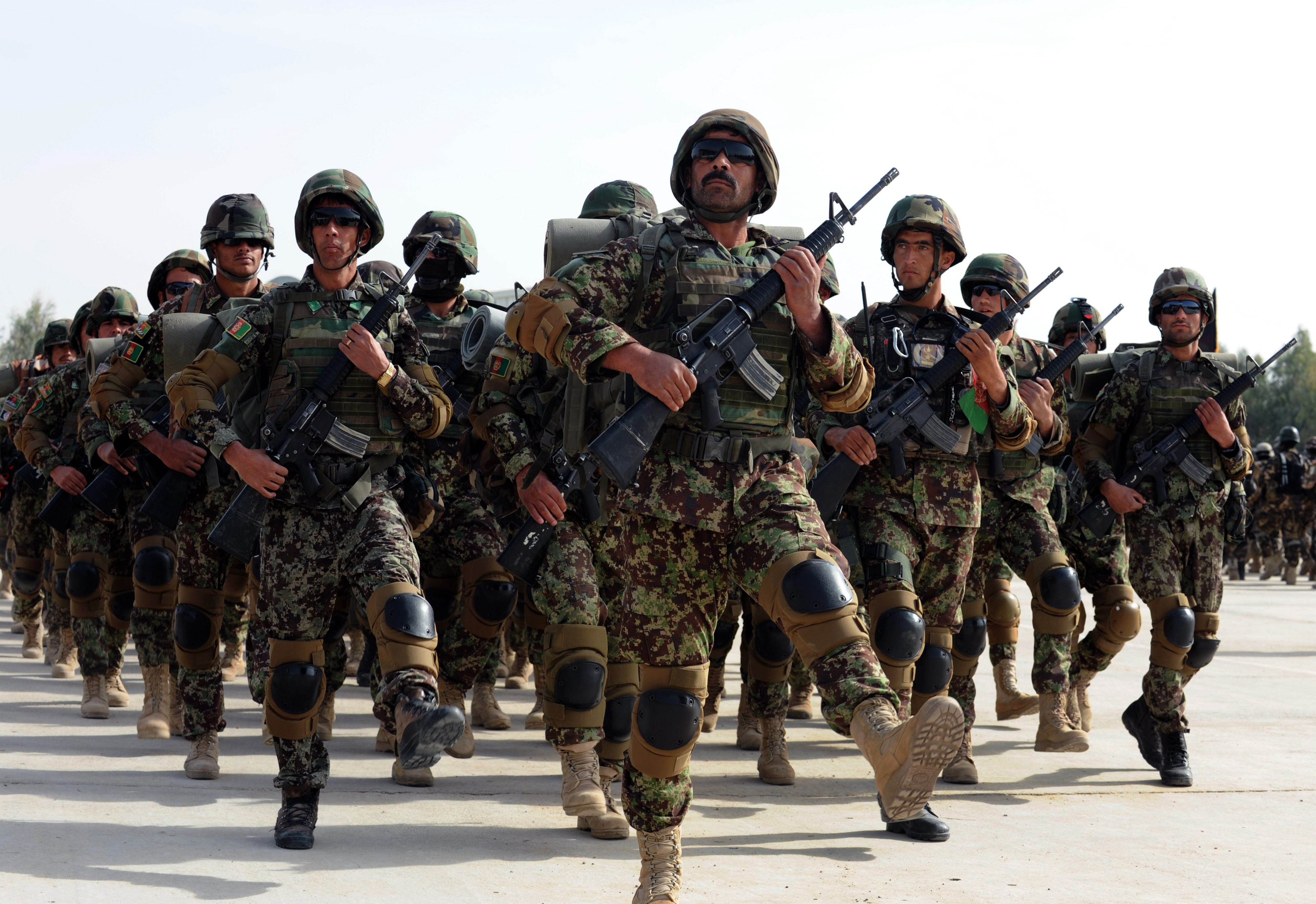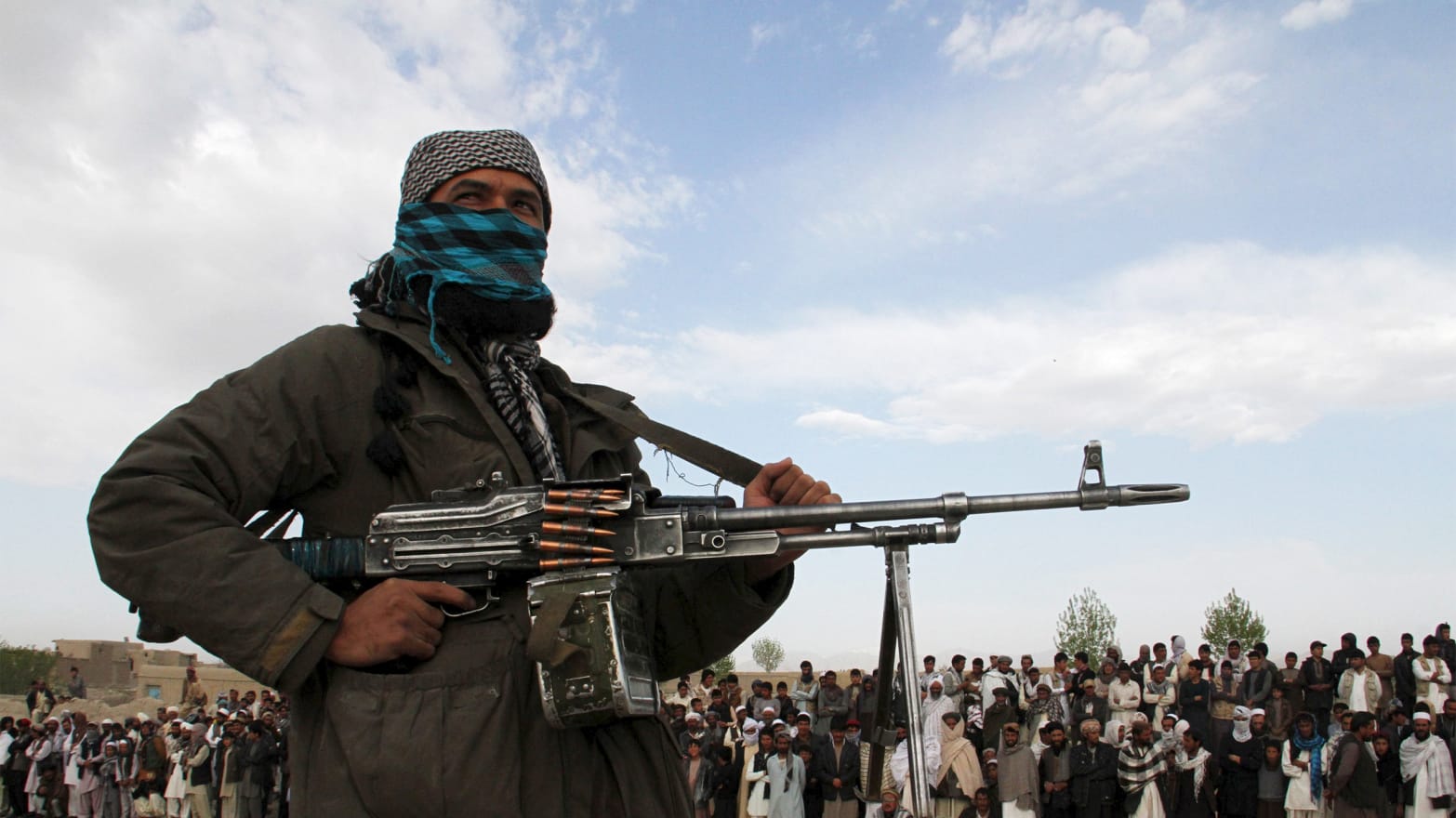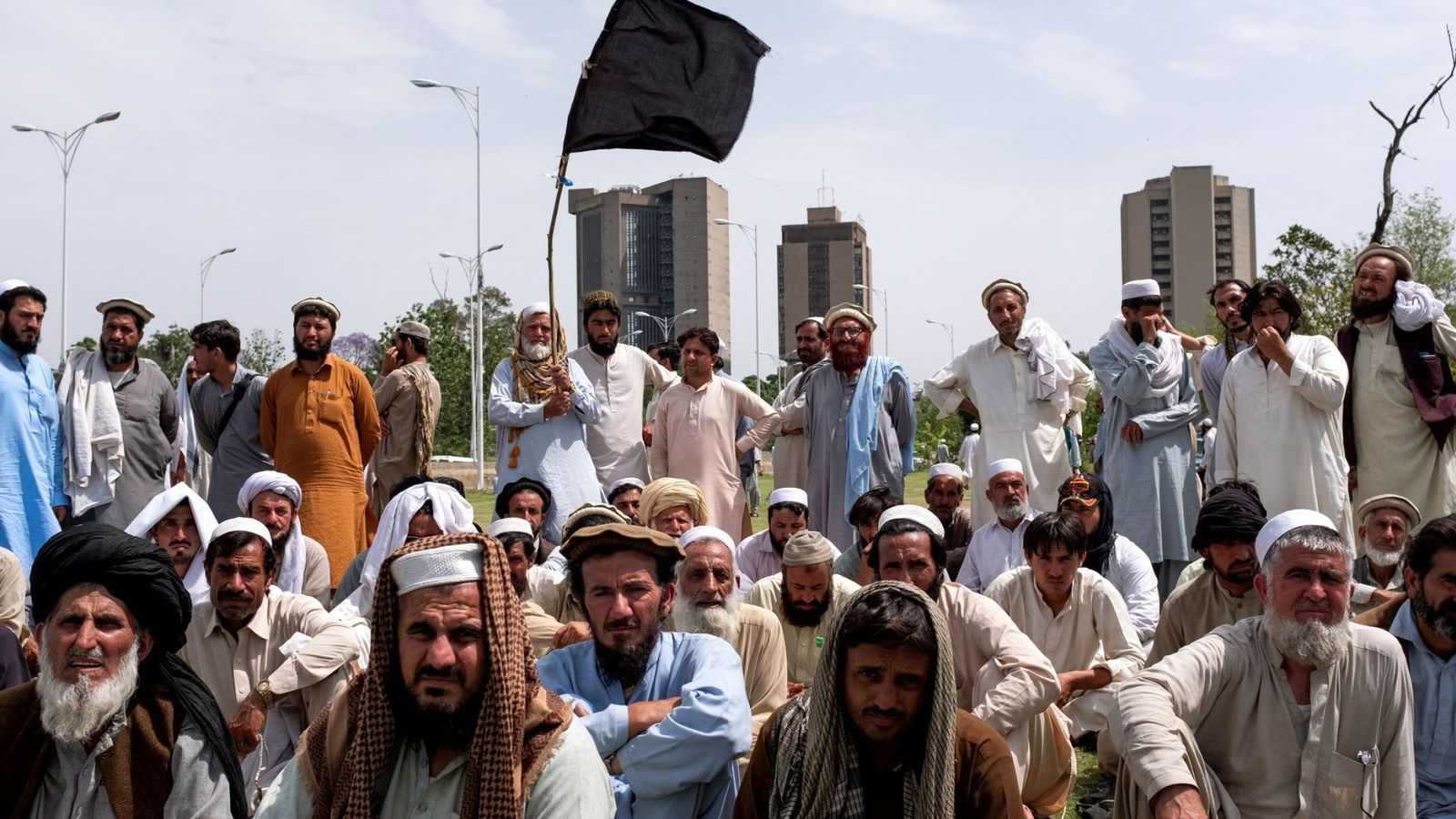(CONTINUATION)
Another characteristic of the social organization of these frontier semi independent tribes is that they stimulate a relative endogamy. With it they seek to isolate, to protect, to support or to increase their idiosyncrasy, influence and patrimony. But, without been biological harmful its use. As it would be between the members of the same family or small or nearby clan. In effect, the marriages not only suppose and carry individuals exchanges between the families of the married. They also produce exchanges and flows of gifts, visits, relations and power plots. In a few little evolved societies, living in a difficult way and, sometimes surrounded temporarily by hostile, the matrimonial relations produce a «revenue», an increases of social positions, influences and goods, which are very estimated by the families.
Taliban Operational.
The highland villages are numerous, small and spread for both sides of the common border. In them can be camouflaged a small group of «regulars» Taliban, waiting that the jerky military flood passes away. Apart, the Taliban enjoy a complicated system of natural caves, reinforced by communication tunnels, endowed with extended zones for waiting and the storage of all classes of goods. This system is used to facilitate the traffic between both countries, without having to use the frontier passages or the most habitual and known gorges, as «parts» of the complete journey. And as temporary refuge, when the Allies carry out reprisal or rebels searching operations, on Pashtun zones where they have been more active. Taliban are Pashtuns. Only are distinguished from the local tribes by their major religious proselytism and military activity. Some of the villagers whom the soldiers meet in their patrols and searches, could be «part-time» Taliban or sympathizers. Two or three men of a native group that pass along a rural way, can be a Taliban team moving across.
The operational key of the Taliban resides in their innumerable local chiefs, with their small guerrillas bands. They are the persons in charge of intimidating, teaching, scaring, attacking and occupying more or less temporarily some of the numerous settlements and hamlets. According to the pressure degree that they should exercise on the villagers in order that they inform them, hide them and support them. Evidently its elementary degree of operational development keeps the movement at the defensive. Without being able to dispute to any of the present foreign Armies in these areas, any territory or village. Without being able to realize other attack actions beyond ambushes, assaults to very small enemy isolated units, harassment by medium range fire, kidnapping, short duration isolated incursions and the mined of ways and paths. Ideologically concentrated in the conversion to their movement, to their semi nomadic cells, of the most related or nearby Pashtuns.
Though they are willing to die for their ideals, with the promise of stay in one of the Seven Heavens of Islam, in the first of which resides Abraham, visited daily by 50,000 angels, the Taliban do not hesitate to retreat in the face of a decided attack or the determined and tenacious resistance of their military enemy.

Their usual procedure to assault a weak defended or without spirit position is this: at dawn they bombard with the fixed rocket launchers heavy fire, then they approach to use mortars, finally, the assault is realized by several independent squads, that converging advance in a broken line shooting AK and RPD or PK machine gun bursts and their RPG and RL grenade-launchers. Heavy weapons are fired from the sides of the sections and fire is directed from top to bottom or bottom to top or on verify target. To avoid own casualties by friend fire.
The struggle for the minds and wills.
The Taliban managed to implant their «global radical theocratic» regime by fighting the regional warlords and unifying Afghanistan. They established a lax and weak socio-political structure, but enough, to give the country some preence. Regionally and locally, they controlled the tribal organs of power and, at the same time, possessed small garrisons of irregulars and militia. That were enough to control and govern that state structure.
Displaced from power 20 years ago, their tenuous and sufficient religious political structure remains and their guerrillas and semi-regular forces operationally advance and retreat. Adapting plasticly to the fight against a national regular army of shoddy. That was supported by air and ground heavy fire from the forces of the NATO countries deployed in the country. And with the elite forces of those, for punctual actions of “search and destruction” of the Islamist guerrillas. Operations that were generally of mediocre effectiveness, below what was planned at headquarters.
There are no real academies of officers and non-commissioned officers in Afghanistan. In its Army, it thrives by adapting to the immediate commands. The salaries of the troops are squandered by their superiors. There his short pay and role as a uniformed soldier is a sign of prosperity and social power among his clans.

Chiefs, officers and non-commissioned officers lack a «national morale» that impels them to full defense of Afghanistan against the Black Death of the Taliban. There is no professional honor, a «corps spirit» that galvanizes them with their fellow unit members in a quest for victory.
In short, there is not in the entire administration an exemplary, honorable and suffered behavior (paradoxically, although the country is ruled by misery) on the part of the superior chiefs and the civil authorities. To urge them to fulfil all their professional and social duties towards their distant compatriots or towards the democratic Afghanistan. That today it is the shell of an empty, exhausted and sterile socio-political structure.
The Civil, Ideological and Military Campaign against the Bands.
Here, the enemy is evasive, dispersed, worse armed than military, bad trained, unruly. But, he is native, is tough and scanty, hides and disguises easily. He is a born predator, with an atavistic cunning and usually does not defend his positions. He uses them to wear down the regular enemy and will leave them at the least perceived danger; in the form of flanking movement, deliberate frontal or on the rear attacks.
The operations of the military great units and units let escape the guerrilla teams through the infinity tactical «interstices». It is necessary to operate with nearness at his microtactical military and social level. To the diffuse, tenuous, but omnipresent «swarm» of the Taliban is necessary to interpose a civic military «swarm«. Formed by voluntary elements, more qualified, professional and trained than the guerrillas.
It is necessary to create small «action units«, for combined “social military” actions. That are capable of reaching the Taliban habitat and to expel them from it, progressively and firmly. Interposing between them and the tribes, his real guerrilla habitat. Units that, in its basic model, would be formed by a platoon of light infantry local loyal trained forces, a squad of professional foreign infantries and a group of civil technical personnel for tribe promotion and education with suitable material. Its logistics and support will be based on ground units and helicopter-borne forces, centrally controlled from 2 or 3 near regional operational bases. And complemented by mobile columns in vehicles or of cavalry, forming a support patrols’ network in a region.
Once made firm these small flexible units, can arrive there major forces and brigades of work and education, to go garrison the zone and stimulating its social improvement. It is necessary to possess money to buy the will of collaborators and sympathizers. This can become facilitating work and social distinction to them. And to realize the necessary of development plans.
To eradicate the opium crops can be an independent strategic goal. And it is necessary to value very well its opportunity and possibility for every small zone. It is necessary to offer the natives an alternative of peace, progress and well-being, within their beliefs and ways, in order that they expel the Taliban. That are really for the Pashtuns, war mercenaries and exploiters of civilians, clans and tribes; foreign to the Popular Islam professed by the Pashtuns tribes.
Conclusion.
Liberal democratic values, which are supposed to sustain the legal government in Kabul, are «republican ideological convictions«. They are not felt, and they are not lived by almost anyone in Afghanistan. They are foreign to the Afghan people, to whom they bring neither prosperity, nor security, nor more desirable identity.

Americans and their local allies have erected and superimposed a «centralized administrative and political edifice» on the identity and social arena of Afghanistan. And that at the first blow of a serious economic or social setback or of the Taliban military battering ram, it will start to throw out of balance, crack and sink in the eyes of everyone.

In the last weeks, the Taliban are occupying border posts in northern Afghanistan and are conducting a partial, loose encirclement of some of the country’s largest populations. This allows them to intimidate the Afghan armed forces and send a message of determination and power into and out of the country.
In general, international analysts are pessimistic about the ability of the Kabul government and, more importantly, its military to withstand a determined and prepared onslaught, a flood, by the Taliban. To take political and social power in Afghanistan. The discrepancy between these analysts is only when the Taliban will launch that Unstoppable Flood.
The End.


